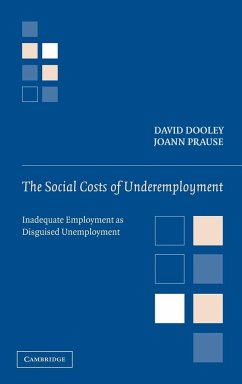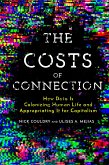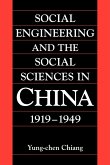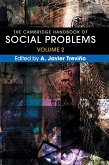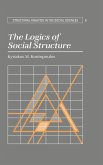Short description/annotation
This compares the effects of unemployment and inadequate employment relative to adequate employment.
Main description
Going beyond the usual focus on unemployment, this explores the health effects of other kinds of underemployment including forms of inadequate employment as involuntary part time and poverty wage work. Using the National Longitudinal Survey of Youth, this compares falling into unemployment versus inadequate employment relative to remaining adequately employed. Outcomes include self-esteem, alcohol abuse, depression, and low birth weight. The panel data permit study of the plausible reverse causation hypothesis of selection. Because the sample is national and followed over two decades, the study explores cross-level effects (individual change and community economic climate) and developmental transitions. Special attention is given to school leavers and welfare mothers, and, in cross-generational analysis, the effect of mothers' employment on babies' birth weights. There emerges a new way of conceptualizing employment status as a continuum ranging from good jobs to bad jobs to employment with implications for policy on work and health.
Table of contents:
Preface; 1. Disguised unemployment and changing forms of work; 2. The social costs of unemployment; 3. Data source and methods; 4. Reverse causation: findings on the selection hypothesis; 5. Leaving school: self-esteem in an unwelcoming economy; 6. Early adulthood: alcohol misuse and underemployment; 7. Settling down: psychological depression and underemployment; 8. Extending the employment continuum: well-being in welfare transitions; 9. The next generation: underemployment and birth weight; 10. Conclusions; 11. New directions; Appendices: Appendix A; Appendix B; Notes; References; Index.
Hinweis: Dieser Artikel kann nur an eine deutsche Lieferadresse ausgeliefert werden.
This compares the effects of unemployment and inadequate employment relative to adequate employment.
Main description
Going beyond the usual focus on unemployment, this explores the health effects of other kinds of underemployment including forms of inadequate employment as involuntary part time and poverty wage work. Using the National Longitudinal Survey of Youth, this compares falling into unemployment versus inadequate employment relative to remaining adequately employed. Outcomes include self-esteem, alcohol abuse, depression, and low birth weight. The panel data permit study of the plausible reverse causation hypothesis of selection. Because the sample is national and followed over two decades, the study explores cross-level effects (individual change and community economic climate) and developmental transitions. Special attention is given to school leavers and welfare mothers, and, in cross-generational analysis, the effect of mothers' employment on babies' birth weights. There emerges a new way of conceptualizing employment status as a continuum ranging from good jobs to bad jobs to employment with implications for policy on work and health.
Table of contents:
Preface; 1. Disguised unemployment and changing forms of work; 2. The social costs of unemployment; 3. Data source and methods; 4. Reverse causation: findings on the selection hypothesis; 5. Leaving school: self-esteem in an unwelcoming economy; 6. Early adulthood: alcohol misuse and underemployment; 7. Settling down: psychological depression and underemployment; 8. Extending the employment continuum: well-being in welfare transitions; 9. The next generation: underemployment and birth weight; 10. Conclusions; 11. New directions; Appendices: Appendix A; Appendix B; Notes; References; Index.
Hinweis: Dieser Artikel kann nur an eine deutsche Lieferadresse ausgeliefert werden.

